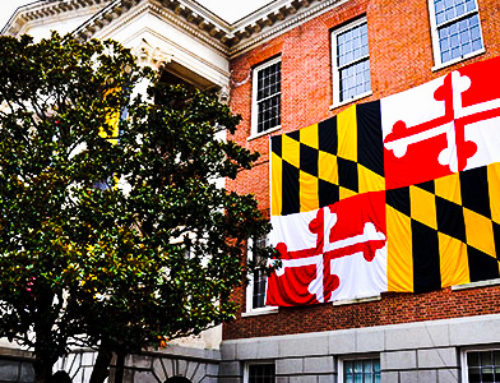View by Topic
Recent Articles
-
Greenpeace Ordered to Pay $667M in Blow to ActivismSaturday, March 22nd, 2025
-
The Most Consequential Day of Environmental Deregulation in American HistorySaturday, March 15th, 2025
-
States Challenge Validity of New York’s Climate Change Superfund ActSaturday, March 8th, 2025
-
House Votes to Protect the Hot Water Heater in Your HouseSaturday, March 1st, 2025
-
EPA Transmits California Electric Vehicle Waivers to Congress for RepealSaturday, February 22nd, 2025
View by Month/Year
“Green Building Law Update” Headlines
Recent Articles & News from
Stuart Kaplow’s blog
at GreenBuildingLawUpdate.com
- Greenpeace Ordered to Pay $667M in Legal Blow to Environmental Activism March 23, 2025
- The Most Consequential Day of Environmental Deregulation in American History March 16, 2025
- States Challenge Validity of New York’s Climate Change Superfund Act March 9, 2025
- House Votes to Protect the Gas Water Heater in Your House March 2, 2025
Subscribe to the Green Building Law Update!
Stuart Kaplow brings his expertise and extensive experience to the table with his unique digital publication, "Green Building Law Update". Subscribers receive regular updates to keep them informed about important issues surrounding Environmental Law, Green Building & Real Estate Law, as well as the emerging demand for Environmental Social Governance (ESG).
Get fresh content through the lense of Stuart Kaplow's cutting-edge expertise, innovative commentary and insider perspective. Don't miss another issue! Subscribe below.

Blockchain has come to U.S. Real Estate
Earlier this year a precedent setting property sale in Vermont was the first real estate transaction in the United States using blockchain, portending a new era in the sale of land and improvements.
Blockchain technology is an industry disrupter on the cusp of improving transactions across all sectors and borders. It is suggested blockchain may do for the $217 trillion U.S. real estate market what the portable phone did for communication, .. and that may be an understatement. Blockchain will address high transaction costs, long time delays, and heterogeneity of real estate transaction types, accelerating the investment in real estate across sectors, the nation and the globe.
Blockchain, a digitized, distributed ledger that records and shares information, could enable the real estate industry to address many of its inefficiencies. Think of blockchain as the technology, or better yet the operating system, that supports the software, Bitcoin, the digital currency launched in 2009 that has been very much in the media in recent days as prices have gone up and down. Cryptocurrency is only one (.. although a high profile one) of an untold number of applications of blockchain. In another high profile application, Walmart just announced it is requiring suppliers of leafy green vegetables upload growing and shipping data to blockchain by September 2019.
There is no requirement for a cryptocurrency (.. Bitcoin or other) exchange in a business transaction undertaken with a smart contract stored over the peer to peer network that is blockchain. Consideration may be paid by any agreed to ordinary means.
Real estate is a highly regulated industry and real estate transactions must to be recorded in a government ledger to be recognized and enforceable by all. There are more than 3,600 governments in the United States alone where real estate deeds are filed and the vast majority are paper instruments filed with a court clerk and made much more expensive and not easily accessible except to a dinosaur industry of local courthouse title abstracters supported by a coterie of indemnity title insurance companies.
There have been government studies and pilot programs, including the much ballyhooed Cook County, Illinois pilot that designed blockchain real estate conveyance software, but did not result in an actual conveyance.
Then Palo Alto based private company, Propy, announced that in a Vermont pilot program it had used blockchain for a property purchase on February 20, 2018 in Chittenden County, Vermont, a first in the U.S.
Propy later announced on July 23, 2018 a blockchain recorded property transaction in California involving the sale of 10 acres of land. Actually, the first deed in In California, was apparently recorded by Propy on a blockchain transaction in May and the San Francisco Recording office holds a deed containing blockchain information (.. so maybe not a pure blockchain transaction).
I posted to this blog last year when Propy announced the very first blockchain sale anywhere, an apartment in Kiev, Ukraine in 2017. And on October 9, 2018 Propy announced it had used blockchain for a property purchase in Seville, Spain.
Laws will need to be changed across the U.S. and the globe to allow more than the old fashioned register of deeds because today in most of the thousands of local jurisdictions in the U.S. the transfer of ownership of real estate is enforceable only when the deed in presented for recording among the land records in the courthouse.
There is of course some risk that a patchwork of state laws may inhibit blockchain growth, so most states are adopting minimalist legislation demonstrating that the jurisdiction and its courts are blockchain friendly.
States have been actively making the necessary changes in law since 2016.
In 2016, Vermont enacted House Bill 868, now a model across the country, that provides for the enforcement of transactions using blockchain by providing a rebuttable presumption of admissibility of a blockchain based digital record as a ‘business record’ under Vermont’s rules of evidence in any judicial matter,
A digital record electronically registered in a blockchain, if accompanied by a declaration that meets the requirements of subdivision (1) of this subsection [.. notarized], shall be considered a record of regularly conducted business activity pursuant to Vermont Rule of Evidence 803(6) ..
Flowing from that law came the first real estate transaction in the U.S. described above.
Similarly in 2018, Ohio passed Senate Bill 200 providing that “a record or contract that is secured through blockchain technology is considered to be in an electronic form and to be an electronic record.” Electronic signatures secured through blockchain technology are also considered to have the same legal standing as any other electronic signatures.
In 2017, Arizona went even further enacting a broad sweeping House Bill 2417 recognizing blockchain signatures and smart contracts as an electronic record and Senate Bill 1084 requiring governmental agencies to allow the use of electronic records or electronic signatures, including for the transfer of real estate.
At least 25 other states have some blockchain authorizing law; as do Dubai, Israel, Canada, Sweden, and the Ukraine.
This law firm has worked with clients in the outdoor sports apparel and agricultural sectors in matters of blockchain and we see the application in real estate.
Interestingly, it may well be leasing that will elevate blockchain in the real estate marketplace ahead of deeds because most leasing transactions do not require involvement of a statutorily mandated government registrar.
Owners of green buildings, as among some of the most progressive in the real estate industry will all but certainly be at the forefront of this technological revolution. But all owners of commercial real estate, whether or not their immediate aim is improve elasticity, risk becoming as outmoded as the buggy whip industry, if they do not consider adopting blockchain technology.









